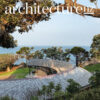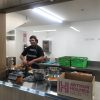Since its inception, the Trust’s longstanding vision has been to create a central Wanaka Hub that all residents identify as their community “home away from home”. The vision was to create a welcoming, light and modern building encompassing a number of different spaces where all residents could access for a variety of activities, meetings, and events. Most important to the Trust was that the building had a real ‘soul,’ that when you walked through the doors you felt a strong sense of community, friendship and inclusion.
It was important to the Trust that the Hub provided a wide ranging social service platform, each tenant equally as important as another, and collectively providing a strong ‘helpline’ for all residents.
While social organisations and not-for-profits were to be a key part of the Hub activities, they were not its entirety. Equally important were the inclusiveness of all local clubs and groups to use the Hub as their central place for their activities. The vision was for a well utilised Community Hub with users strongly reflecting the community as a whole.
The Trust’s role was three staged and took place over a number of years. In the first stage (2004-2016), the Trust priorities were to get approval for the concept from both the Church and the community, to formulate building plans and costings, and to raise capital to enable the build to commence.
The second stage for the Trust (2017-2019) was a move into build mode. During the latter part of this stage the builders, Arrow, went into administration resulting in escalating costs and unexpected fundraising.
The Trust’s priorities for the final stage, 2020 onwards, moved to embedding the Trust’s philosophy and ensuring the building’s ‘soul’ serves all residents using the Hub and meets the widest range of community interests. Overriding this is ensuring the Hub’s financial sustainability.
The Trust expects that the Wanaka Community Hub will be the pre-eminent centre for local community development and social support for the district. It will be servicing the “home” needs of small interest groups, clubs, charitable groups as well as established local business interests, start up companies and incubating entrepreneurs. Arts and crafts activity will be lively with the walls of the Hub constantly changing with exhibitions and displays of adult and children’s work. Art, music, crafts and hobby and garden classes, particularly but not exclusively for children, will be among the community driven activities. Young people through to the elderly will have reason to regard their Hub as their centre for community activity; the place to turn first to have their interests and needs met. They would know that the Trust and Hub management listen, suggest and support their activities. They would have a Trust that sees its role in this future as the key facilitator seeking opportunities and ensuring that through networking and publicity ideas for better ways of having the community participate in and with their unique resource. A Trust that seeks the identification of the Hub as community development and support through what individuals and the community bring to it and take from their experiences within it.
In this future the community would also know that in times of difficulty the Hub houses among its key tenants social service agencies that provide advice, guidance and material support. The Trust will also be aware of its responsibilities to give priority to the needs of these agencies in times of emergencies to see that their resources are used within the community to the greatest advantage. The Trust will have developed its own plans on how this support could be accomplished.
As we become more embedded in the district, our community will identify more and more with their Hub as their unique community resource.


